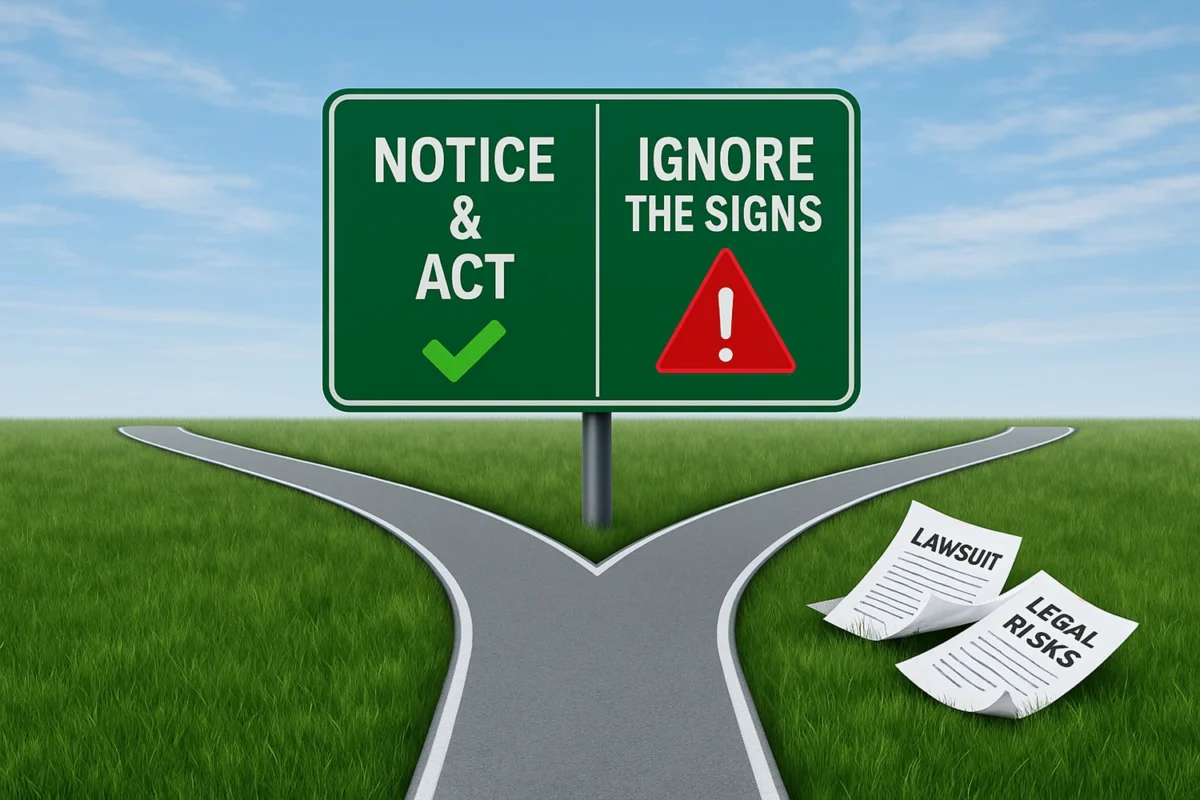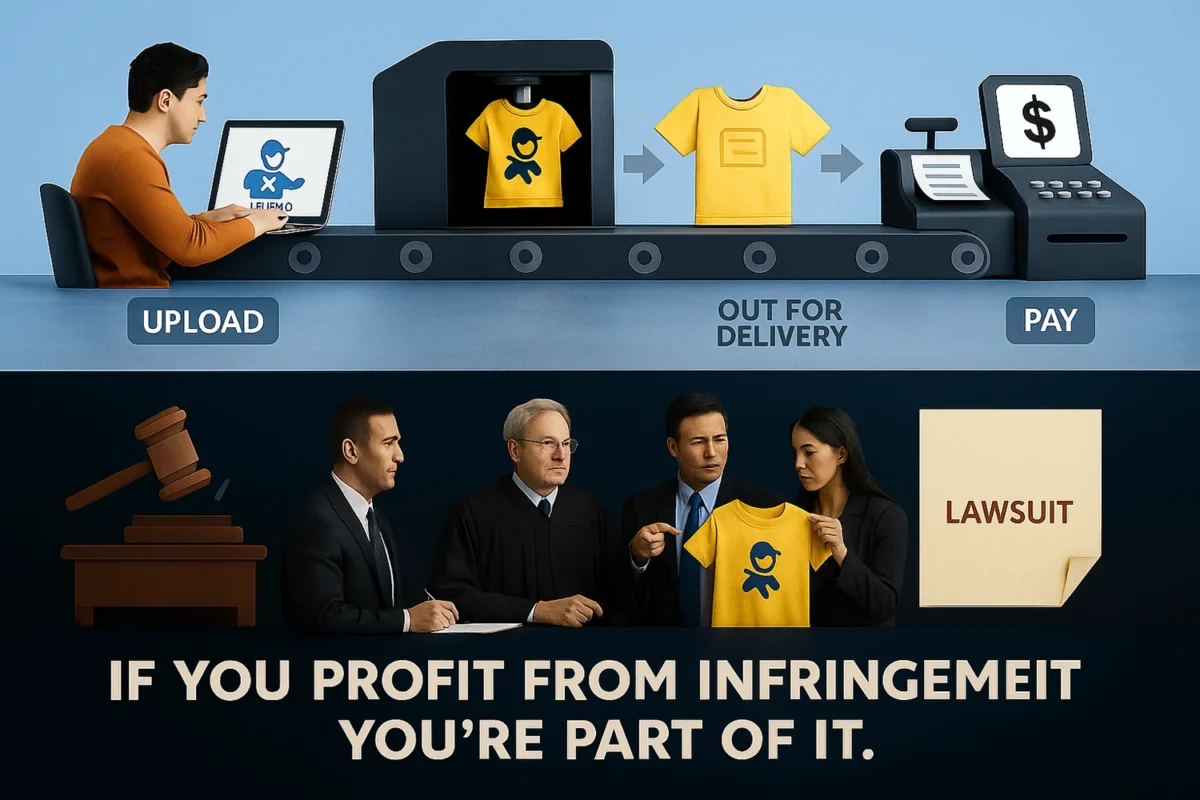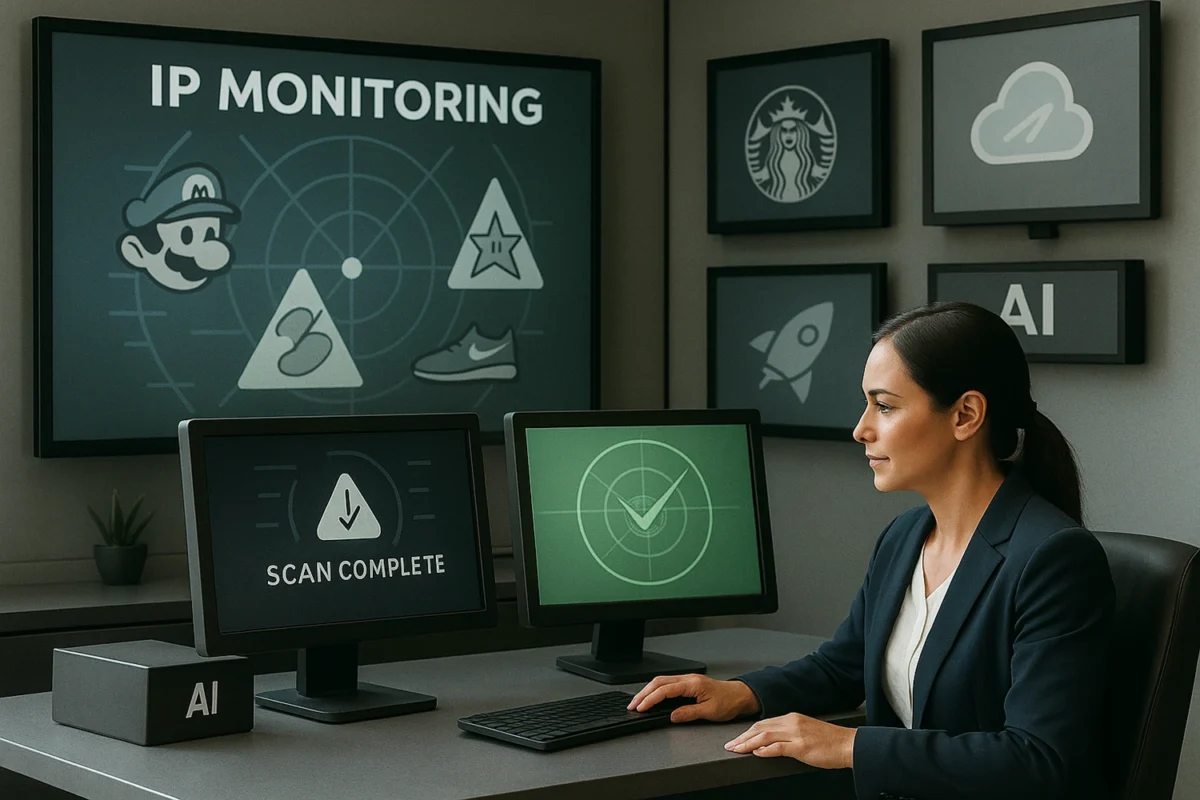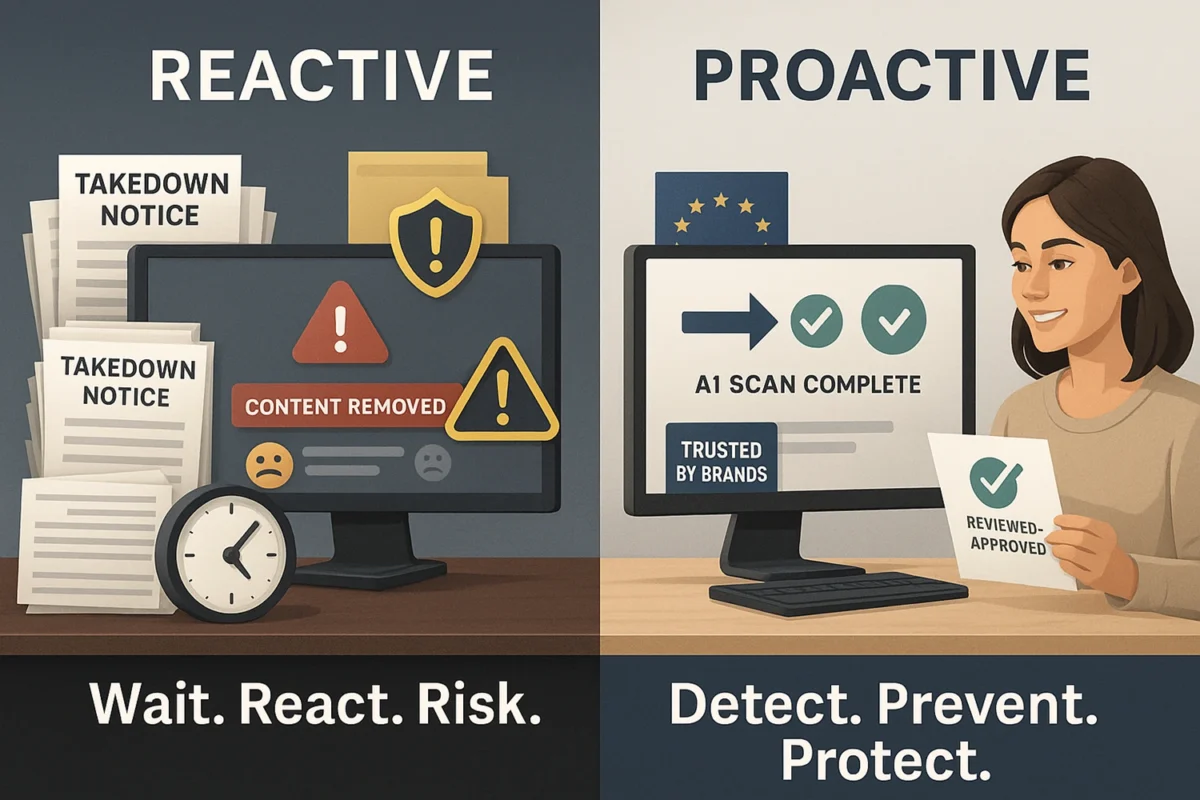What “Red Flag” Knowledge Means and Why It Can Cost You Your Safe Harbor
The DMCA Safe Harbor protects platforms from liability-but only if they act responsibly when faced with infringement.
A major reason platforms lose Safe Harbor protection?
They ignore something called red flag knowledge.
Here’s what red flags are, how courts interpret them, and why using proactive detection like VISUA’s Infringio is crucial to staying protected.
1. What Are Red Flags?
Red flags are obvious signs that infringing activity is happening on your platform-even if no one files a formal complaint yet.
Common examples of red flags:
- A listing featuring a major movie character with slightly altered colors
- A t-shirt design saying “Starbucks Vibes Only” in green circular branding
- An upload that uses a famous brand name spelled slightly wrong (e.g., “Adibas” instead of Adidas)
- Trending memes featuring protected logos or imagery without permission
- Repeated uploads from known problem sellers featuring recognizable IP
Key point:
If a reasonable platform operator would suspect infringement based on the circumstances, it’s a red flag.
2. What Does “Knowledge of Red Flags” Mean?
Courts have made clear:
You don’t need actual notice (like a DMCA takedown) to be responsible.
If a platform sees enough clues to suspect infringement and does nothing, it can be held liable.
Knowledge of red flags means:
- Recognizing suspicious content
- Having systems or policies that reveal likely infringement
- Facing obvious risks and choosing not to act
Simply saying “we didn’t know” won’t work if it’s obvious that you should have known.
3. Red Flags vs. Actual Knowledge: Both Trigger Action
- Actual knowledge = receiving a formal DMCA takedown notice or a brand complaint.
- Red flag knowledge = noticing (or reasonably noticing) suspicious content without a formal notice.
Important:
Under DMCA rules, both kinds of knowledge trigger an obligation:
- Platforms must act expeditiously to remove or disable access to infringing material.
- Failure to act jeopardizes Safe Harbor protections.
(For more background, see DMCA 101: How the Safe Harbor Works for Platforms and IP Infringement Explained: What Platforms Need to Know.)
4. What Is Willful Blindness?
Willful blindness occurs when a platform:
- Deliberately ignores obvious signs of infringement
- Creates systems that avoid or suppress detection of known risks
- Fails to implement tools that are standard in the industry to detect common violations
Courts treat willful blindness as actual knowledge-meaning you lose Safe Harbor protections entirely.
Examples of willful blindness:
- Turning off moderation filters to boost revenue
- Ignoring obvious brand infringement trends
- Failing to review high-risk categories (e.g., sports merch, pop culture designs)
5. AI and Automation: A Valid Defense Against Red Flag Knowledge
One of the strongest defenses a platform can show today is proactive detection efforts.
Using AI and automated systems-like VISUA’s Infringio-helps platforms:
- Detect suspicious content before it becomes widespread
- Flag patterns of infringement faster than human moderators can
- Demonstrate to courts that the platform took reasonable, industry-standard steps to prevent infringement
Even if AI doesn’t catch everything (no system is perfect), showing good faith efforts to identify and act on red flags can preserve Safe Harbor protections.
Proactive monitoring = evidence of due diligence = stronger legal defense.
Conclusion: Red Flags Aren’t Optional Warnings-They’re Legal Triggers
If your platform notices suspicious IP use-even without a takedown notice-you have a legal obligation to act.
To stay protected:
- Train moderators to spot red flags
- Implement AI tools that identify context-based infringement
- Build workflows that prioritize action on suspicious content
- Document responses to red flag incidents
Because ignoring red flags isn’t just risky-it’s the fastest way to lose your Safe Harbor and face legal consequences.
Book a demo with VISUA today about finetuning your red flag policy with Infringio.
Disclaimer: Not Legal Advice
This content is provided for informational purposes only and does not constitute legal or professional advice. The information reflects our understanding as of the date of publication and may not apply to every situation or jurisdiction. You should consult qualified legal counsel for advice tailored to your specific circumstances. Any actions taken based on this content are at your own risk. Neither VISUA nor its affiliates accept liability for any losses or damages arising from the use of this information.
Book A DemoRELATED
Redbubble, Teespring, and the Lessons of IP Enforcement Failures
Reading Time: 3 minutesPrint-on-demand (POD) platforms empower creators to design and sell products without holding inventory. But with that power…
BlogHow AI Is Changing the Game in IP Enforcement
Reading Time: 2 minutesIP enforcement used to be simple: But today’s infringement landscape – especially for POD and UGC-heavy platforms…
BlogThe Future of IP Compliance – Proactive vs. Reactive Models
Reading Time: 2 minutesFor years, most platforms treated IP compliance as a reactive function: But the market – and the…
Blog


